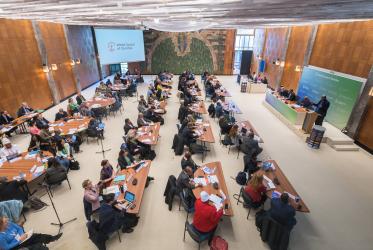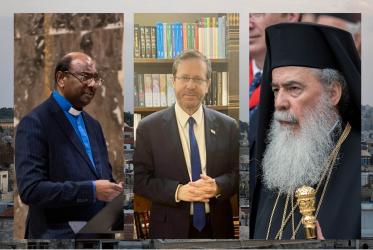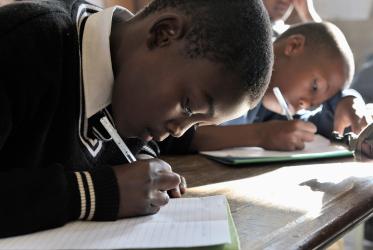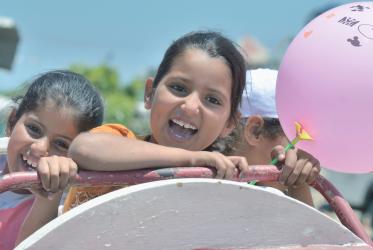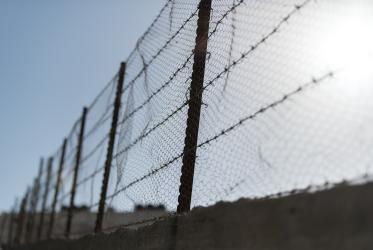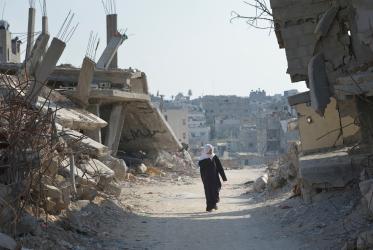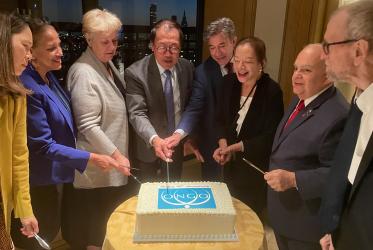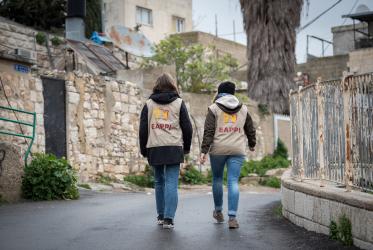Displaying 1 - 20 of 318
WCC expresses deep concern for human rights in Haiti
28 March 2024
WCC submits comments on draft UN “Pact for the Future”
12 February 2024
In Angola, WCC takes human rights approach to obstetric fistula
01 February 2024
WCC calls for immediate end to brutal violence in Gaza
30 December 2023
World Children’s Day symposium brings sparks of hope
21 November 2023
Beginning soon: 16 Days against Sexual and Gender-Based Violence
21 November 2023
Violence against Palestinians is rising in the West Bank
16 November 2023
“The occupation can’t last forever”
25 October 2023
“They want to live without fear and constant harassment”
25 October 2023



